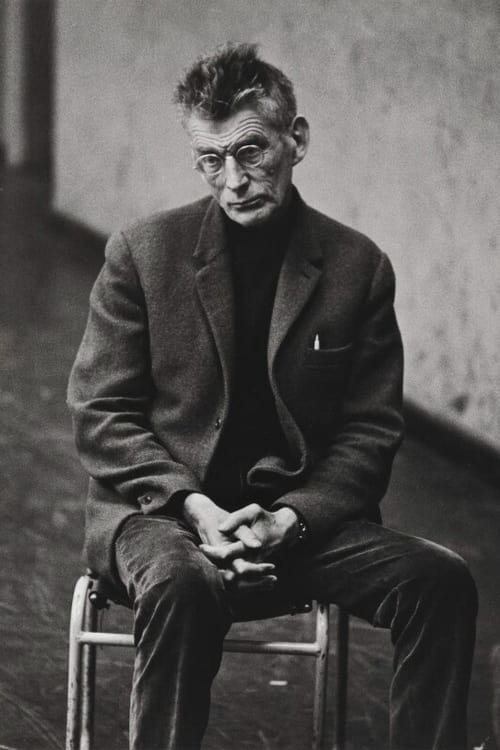
Writer
An experimental exploration of the storied play. Becket’s vision of perpetual uncertainty, anxiety, and loneliness is refracted through our current moment.

Writer
Winnie is buried up to her waist. The merciless sun beats down. Her husband Willie barely speaks. And yet! - she proclaims – ‘this will have been another happy day’. Defiant, determined and fiercely resilient, Winnie greets each day with humour and boundless optimism, and lives as best she can between the bell for waking, and the bell for sleep. Siobhán McSweeney (Derry Girls) plays Winnie in Samuel Beckett’s masterpiece. Directed by Caitríona McLaughlin, with Marty Rea (Waiting for Godot) as Willie, the creative team also includes Jamie Vartan (design), Paul Keogan (lighting design) and Sinéad Diskin (sound design).

Writer
Krapp’s Last Tape: James Hayes uses his natural Irish accent to deliver the best known of these works, a meditation on ageing. He plays the eponymous Krapp, a sad, lonely man recollecting emotion in tranquility with the assistance of a reel to reel tape recorder. Now somewhere near 70, he is reminded of the past, as a recording of his 39-year-old self recalls life a dozen years before. As such, we are able to glimpse the hope of relative youth, the acceptance of middle age failure and the resignation of an old man. The Old Tune: It features two old men sitting on a park bench next to a hurdy-gurdy and almost inevitably brings to mind the song from Gigi, “I Remember It Well”. As cars pass, irritating the men who fondly remember the days of horse-drawn carriages, every statement delivered by either Niall Buggy or David Threlfall, playing the grumpy septuagenarians, is instantly contradicted by his fellow, often to great humorous effect.
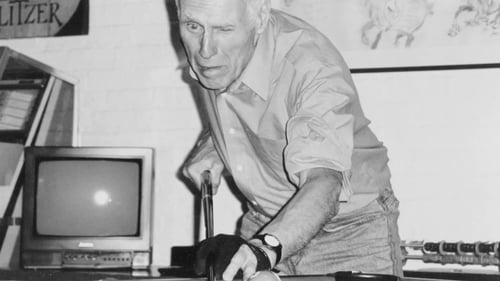
Himself (archival footage)
What makes a rebel? This 78 minute documentary probes the psyche of bad-boy publisher and free speech warrior Barney Rosset, whose mid-century legal and cultural battles smashed sexual and political taboos in the United States — unleashing the counter-culture of the 1960s and introducing millions of young intellectuals to the most radical currents in literature, film, theater and politics. In his late eighties, coming to terms with his life, Barney Rosset began to obsessively sculpt an autobiographical 15′ x 22′ surreal wall mural, embedded with jewel-like vignettes crafted out of found objects, each a clue to the conflicts and obsessions that drove Barney’s lifetime rebellion against authority. A cast of artists, a neurologist, and a shaman connect the clues and piece together Barney’s life.

Writer
With hindsight, we can see exactly how wrong the labels given to Samuel Beckett have been, since it has been said that his writing was sad, negative and desperate. Nowadays, it can be said that several of his pieces submerge us in the reality of human existence, but with an element of humor - and it is this humor that has saved us. Beckett rejects every theory, every core belief, looking for the truth. He observes people amid the darkness and takes them into what is vast and unknown about life, so they can discover their truth by taking a look at themselves and others. Like Beckett, we share their uncertainty, their search, their pain. This theatrical reflection by the masters of European theater, Peter Brook and Marie-Hélène Estienne, incorporates parts of Fragments, a piece premiered in 2008 and filmed in 2015 and which contains the short plays Rough For Theater I, Rockaby, Act Without Words II and Neither.

Self (archive footage)
NOTFILM is a feature-length experimental essay on FILM -- its author Samuel Beckett, its star Buster Keaton, its production and its philosophical implications -- utilizing additional outtakes, never before heard audio recordings of the production meetings, and other rare archival elements.

Writer
On the island of Tanna, a part of Vanuatu, an archipelago in Melanesia, strange rites are enacted and time passes slowly while the inhabitants await the return of the mysterious John.

Writer
Four disembodied faces engage in a cycle of interrogation and torture.

Theatre Play
A 69 year old man sits alone on his last birthday and listens to the past. KRAPPS LAST TAPE is an extraordinary study of mortality, creativity and memory.

Writer
Follows the "Beckett on Film" project, which produced film adaptations of Samuel Beckett's nineteen plays.

Writer
As the rain patters outside, an old man talks to himself about birth, death, funerals, lamps, missing pictures and "loved ones" - a term he perpetually avoids using.

Writer
On a strip of film exist a pile of clothes and two men in bags. The two men conduct their lives in isolation of each other: when one is awake, the other is asleep in his bag.

Writer
The land is filled with people in urns chattering at top speed, but only to themselves, not to one another. The focus goes to three people: a man, his mistress and his wife.

Theatre Play
The land is filled with people in urns chattering at top speed, but only to themselves, not to one another. The focus goes to three people: a man, his mistress and his wife.
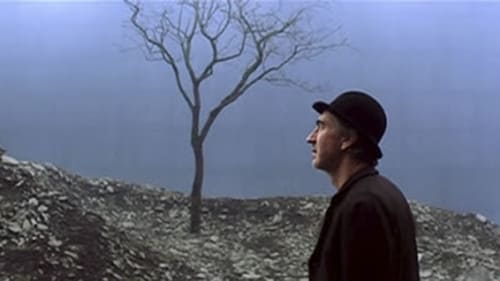
Writer
Two tramps wait for a man named Godot, but instead meet a pompous man and his stooped-over slave.

Theatre Play
Two tramps wait for a man named Godot, but instead meet a pompous man and his stooped-over slave.

Writer
Hamm is blind and unable to stand; Clov, his servant, is unable to sit; Nagg and Nell are his father and mother, who are legless and live in dustbins. Together they live in a room with two windows, but there may be nothing at all outside.

Writer
There are five survivors in a futuristic library. Bam is their supreme dictator, and has the others interrogated and tortured, believing them to have said where. What Bam means is unclear, but he distrusts all.

Writer
In Krapp's Last Tape, which was written in English in 1958, an old man reviews his life and assesses his predicament. We learn about him not from the 69-year-old man on stage, but from his 39-year-old self on the tape he chooses to listen to. On the 'awful occasion' of his birthday, Krapp was then and is now in the habit of reviewing the past year and 'separating the grain from the husks'. He isolates memories of value, fertility and nourishment to set against creeping death 'when all my dust has settled'.

Writer
May, wrapped in tatters, paces back and forth engaging in conversation with the disembodied voice of her mother. In the second scene, May's voice becomes subsumed into her mother's. She paces ever more slowly as the play progresses, and the light dims so that by the fourth and final scene there is no trace of her

Writer
A young woman sits down in a chair. Only her mouth is visible as she begins to speak at a rapid clip, describing events that she insists did not really happen to her.

Writer
A reader tells a sad story to a listener, who only knocks in response.

Writer
An old woman in a rocking chair listens to a disembodied voice (her own) that recounts her life and that of her mother's. When the voice stops, she calls for more.

Writer
An adaptation of Samuel Beckett's short play from 1965. Three women meet on a bench; they reminisce about their old school days and whisper terrible secrets.

Writer
A hot, thirsty man in the desert is tormented when the things he needs drop from the sky only to disappear again or hover out of his reach.

Writer
Two bureaucrats discuss the potential suicide of a man standing perfectly still in front of a door that opens into the night sky and a fatal drop.

Writer
An old blind beggar and an old cripple in a wheelchair meet on a desolate street corner. The latter proposes that the two form an alliance, but the men are not destined to get along together.

Writer
An adaptation of Samuel Beckett's absurdist drama. An ordinary woman lives her humdrum life half-buried in a pile of dirt; her husband is partially visible behind her. She goes through her daily routines, ever hopeful that this is going to be a happy day.

Writer
An autocratic Director (Harold Pinter) and his Assistant (Rebecca Pidgeon) put the final touches to the last scene of some kind of dramatic presentation, which consists entirely of a man (John Gielgud) standing still onstage.

Writer
The camera swoops down on a circular area, seemingly suspended in space. It is filled with medical waste and other trash. A labored exhalation is heard. Then it stops. Then it starts again, culminating in a windy, dying sigh.

Theatre Play
The disembodied head of an old man with long white hair listens to three of his own voices: that of maturity, youth and old age.

Theatre Play
A hot, thirsty man in the desert is tormented when the things he needs drop from the sky only to disappear again or hover out of his reach.

Theatre Play
An autocratic Director (Harold Pinter) and his Assistant (Rebecca Pidgeon) put the final touches to the last scene of some kind of dramatic presentation, which consists entirely of a man (John Gielgud) standing still onstage.

Theatre Play
Two bureaucrats discuss the potential suicide of a man standing perfectly still in front of a door that opens into the night sky and a fatal drop.

Theatre Play
An adaptation of Samuel Beckett's absurdist drama. An ordinary woman lives her humdrum life half-buried in a pile of dirt; her husband is partially visible behind her. She goes through her daily routines, ever hopeful that this is going to be a happy day.

Dialogue
Experimental film in which three girls and one boy lead playful lives. Just as a game, in which the course is determined from beginning to end by certain rules, can be played time and again, their lives are also endless repetition. This eventually results in a loss of a sense of time, for past and future. The four are permanently surrounded by cameras and projectors. In this way we see how photos are repeatedly taken of one of the girls and the boy keeps staring at a film screen. Everything which cannot be repeated is the object of their hatred. One day a woman appears in their lives and wants to die. The four try to involve her in their game, but the opposite happens: the fact that the woman is different disrupts their self-made world. Having playacted a funeral for the woman, they become more and more entangled in their own game.

Writer
When it's sunset in Purgatory and dawn on the Ganges it's noon on the Irish Sea. Filmed on Killiney Hill outside Dublin with John Manning remembering Samuel Beckett. The text echoes the Purgatory.

Biography and in-depth look of Beckett and his work.
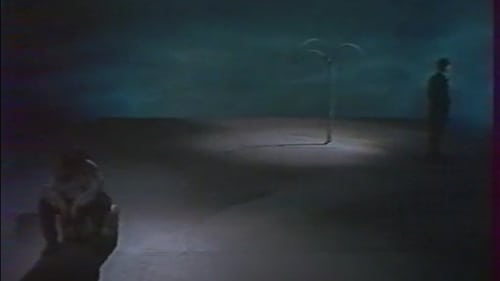
Theatre Play

Writer
A documentary made at the set up of a theater production, of Samuel Beckett's "Waiting for Godot", directed by Jan Jönson, played by prisoners, at San Quentin State Prison in California.The play is about two men who meet on a lonely country road, waiting for someone called Godot to confirm their lives and make life easier for them to live. Towards the end Godot announces that he will not come tonight, but maybe tomorrow. Producer and director John Reilly and a crew spent four weeks at the maximum-security facility; rehearsal and performance sequences are inter-cut with footage of daily prison life and discussions with the principal characters.

Director
Two seemingly homeless men waiting for someone or something named Godot. Vladimir and Estragon wait near a tree on a barren stretch of road, inhabiting a drama spun from their own consciousness.

The elusive author of Waiting for Godot cooperated in the production of this portrait, which traces Beckett’s artistic life through his prose, plays, and poetry. Billie Whitelaw, Jack McGowran, and Patrick Magee—Beckett’s great dramatic interpreters—appear in selected extracts from the plays; Beckett specialist David Warrilow narrates a variety of texts.

Writer
Samuel Beckett directs for German television for the last time.

Director
Samuel Beckett directs for German television for the last time.

Director
Nacht und Träume (Night and Dreams) is the last television play written and directed by Samuel Beckett and broadcast on 19th May 1983. It is a wordless play, the only sound that of a male voice humming, then singing, from the last seven bars of Schubert’s lied Nacht und Träume, words by Matthäus Casimir von Collin: "Holde Träume, kehret wieder!" ("Sweet dreams, come back"). Schubert was a composer much loved by Beckett – "the composer who spoke most to him…whom he considered a friend in suffering" (Wiki) Beckett lists five elements that make up the play: evening light, the dreamer (A), his dreamt self (B), a pair of dreamt hands and the last seven bars of Schubert’s lied.

Writer
Nacht und Träume (Night and Dreams) is the last television play written and directed by Samuel Beckett and broadcast on 19th May 1983. It is a wordless play, the only sound that of a male voice humming, then singing, from the last seven bars of Schubert’s lied Nacht und Träume, words by Matthäus Casimir von Collin: "Holde Träume, kehret wieder!" ("Sweet dreams, come back"). Schubert was a composer much loved by Beckett – "the composer who spoke most to him…whom he considered a friend in suffering" (Wiki) Beckett lists five elements that make up the play: evening light, the dreamer (A), his dreamt self (B), a pair of dreamt hands and the last seven bars of Schubert’s lied.

Writer
Cloaked, cowled figures wander in patterns to rhythm instruments. First transmitted by the Süddeutscher Rundfunk in Germany on 8 October 1981. "Between the two parts there is an intermission of 100,000 years." -S.B. during the rehearsals.

Director
Cloaked, cowled figures wander in patterns to rhythm instruments. First transmitted by the Süddeutscher Rundfunk in Germany on 8 October 1981. "Between the two parts there is an intermission of 100,000 years." -S.B. during the rehearsals.

Writer
A one-woman play written by Samuel Beckett at the request of Daniel Labeille. The piece was produced by Labeille on behalf of the State University of New York's Programs in the Arts for a festival and symposium in commemoration of Beckett's 75th birthday (Wikipedia). A self-reflective drama of a figure, W, rocking "to and fro" in her dead mother's rocking chair wearing her mother's sequined funereal garment. With the aid of her pre-recorded voice, W recounts the different phases of a single memory in a bid to connect with "another creature like herself" before rocking herself into an eternal sleep.

Writer
Winnie, a woman in her fifties, is buried waist-deep in a mound of scorched earth, with just a large, black shopping bag and a collapsed parasol. Behind her and hidden from view sleeps Willie.

Writer
Samuel Beckett directs a second production of Eh Joe for German television, after the first one of 1966.

Director
Samuel Beckett directs a second production of Eh Joe for German television, after the first one of 1966.

Writer
A man attempts to remain hidden from view from the camera and other eyes.

Writer
Samuel Beckett directs for German television.

Director
Samuel Beckett directs for German television.

Writer

Director

Writer
A female voice identifies a lone man in a room. The shots cut closer, revealing he is holding a cassette recorder, playing Beethoven's "Ghost" Piano Trio no. 5. The film repeats the imagery, and then shows what he has been reacting to.

Writer
A woman left behind by a man. Based on a script by Samuel Beckett.

Director

Director
Performed at the Royal Court Theatre on 16th January, 1973 Produced for the BBC in 1977 by Tristram Powell Directed by Anthony Page and Samuel Beckett Cast: Billie Whitelaw

Writer
Performed at the Royal Court Theatre on 16th January, 1973 Produced for the BBC in 1977 by Tristram Powell Directed by Anthony Page and Samuel Beckett Cast: Billie Whitelaw

Writer
A 69-year-old man sits alone on his birthday and listens to his past through the form of tape reels he has recorded throughout his life.

Himself
A wordless, silent interview with Samuel Beckett for Swedish Television after Beckett won the Nobel Prize in Literature.

Self
A short film by Rosa von Praunheim

Writer
The first English broadcast of Eh, Joe? which aired on BBC2 on July 4th, 1966 with Jack MacGowran, for whom the play was specifically written, playing Joe and Siân Phillips as Voice. Directed by Alan Schneider with Beckett's supervision.
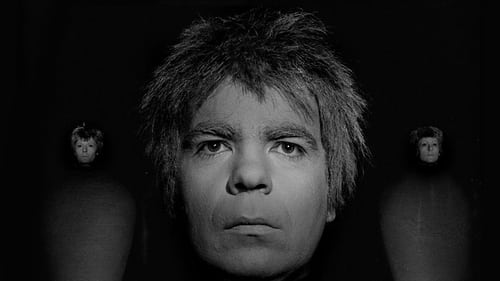
Writer
An adaptation of the Beckett play

Director
An adaptation of the Beckett play
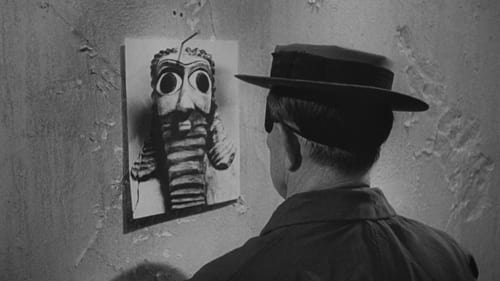
Writer
A man attempts to evade observation by an all-seeing eye.

Writer
A recital of passages from the works of Samuel Beckett, performed by Jack MacGowran, as a raving old man.

Director
The first broadcast of the radio play in English on the BBC on 6th October 1964. The play opens with a familiar Beckettian theme, the search to put an end to language: “—story . . . if you could finish it . . . you could rest . . . sleep . . . not before”. “The shape of the narrative itself is indicative of the mind already in the process of degenerating towards an impasse. Voice alternates between talking about the story-telling itself, or the need to find the story to end all stories, and narrating [what it hopes will be that final] story." (Wiki) The term ‘cascando’ (‘cascades’) involves the decrease of volume and the deceleration of tempo.

Writer
The first broadcast of the radio play in English on the BBC on 6th October 1964. The play opens with a familiar Beckettian theme, the search to put an end to language: “—story . . . if you could finish it . . . you could rest . . . sleep . . . not before”. “The shape of the narrative itself is indicative of the mind already in the process of degenerating towards an impasse. Voice alternates between talking about the story-telling itself, or the need to find the story to end all stories, and narrating [what it hopes will be that final] story." (Wiki) The term ‘cascando’ (‘cascades’) involves the decrease of volume and the deceleration of tempo.

Radio Play
A 1963 TV film directed by Michel Mitrani.

Writer
Two derelicts, Vladimir and Estragon, occupy themselves as they wait for 'Godot' to make an appearance on Pozzo's estate.

Writer
Embers is a radio play written by Samuel Beckett first broadcast on the BBC Third Programme on 24th June 1959. Henry's father ended his life in the sea and for the rest of his life Henry is doomed to the sound of the waves roaring in his ears. For twenty years he has talked incessantly to drown the tempest of his father's watery grave. His wife, Ada, chatters and listens and endures; his child goes through the incidents of a child's life and still the sea roars in the background. (Concord Theatricals)
